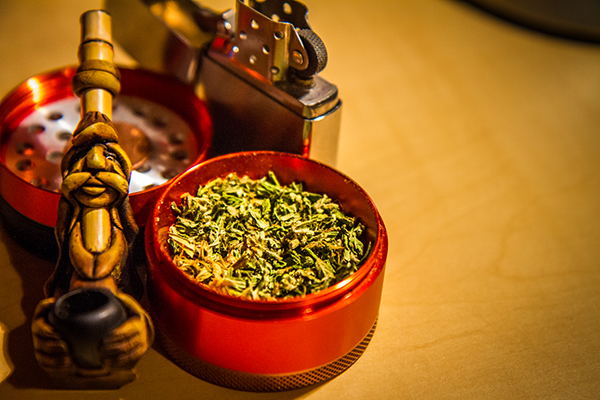Lab Weed
So-called “synthetic cannabinoids” are artificially-produced substances which mimic the structure and functions of THC, the active chemical in marijuana. The substances are developed in laboratories, then sprayed on plant matter and sold as artificial cannabis. Brands include K2, Spice, and Kronic, which rose to fame among most Otago students (and presumably the rest of the country) last year. But following usage-caused health issues, 28 such substances were systematically outlawed one-by-one by Peter Dunne under our current law, which requires substances to be explicitly proven “unsafe” before they are criminalised. And the Government just can’t keep up with the emergence of new ones.The effects of synthetic cannabinoids are implicit in the name: they’re like pot. Symptoms include anxiety, dramatically increased heart rate, abdominal pain, nausea, and vomiting. There have been many synthetic cannabinoid-induced hospitalisations, and one bad trip that resulted in death.
This is why these drugs been outlawed as best as our lawmakers can. “The new law means the game of ‘catch-up’ with the legal highs industry will be over once and for all,” Dunne says. “I have been driving this for a considerable time. None of these products will come to market if they have not been proven safe... Quite simply they will now have to do what any manufacturer of any product that is consumed or ingested already has to do – make sure it is safe.” After approval, substances will likely be subject to retail restrictions including a minimum purchase age, fees, and restrictions on the types of premises where they can be sold.
The Temporary Class Drug Notices led to an instant 75% fall in the number of emergency call incidents caused by synthetic cannabis products, according to National Poisons Centre data. So let’s be reasonable here: that’s a pretty good mandate.
The Regime is Dunne
With this law, Dunne largely succeeds in finding a middle ground between his beliefs and what he knows is political feasible. Although he is a known supporter of complete prohibition, he also understands the risk of an emerging black market. As such, the regulations will be rigorous but not rigid. Reflecting that some substances will become legal, he says that “in the end these are pharmacologically active substances, and there is always some degree of risk in taking such products because people can have varying reactions to them.” As such, approved substances will be labelled “low-risk”, “to avoid implying that they will be entirely safe”. Everyone will no doubt be wondering whether the regulations will be so strict that everything will be banned, but Dunne assures that “legislation should not be used to restrict behaviour that cannot be proved to be harmful. Products that meet the approval criteria will be approved.”However, upon closer inspection of the regime, definitions become increasingly grey. Dunne assures that “the legal status of cannabis will not change... because the regime will only cover new psychoactive substances that are not already classified under the Misuse of Drugs Act 1975.” But what distinguishes substances that can be proved safe and legalised under the new regime from those that were outlawed 37 years ago?
When asked whether we’re legalising drugs, Dunne gives a resounding “no”. This is just confusing. How, exactly, does one define a drug? His escape route from this inevitable black hole of contention is just as confusing. Dunne simply states that “this regime will provide stronger controls over psychoactive substances”, but to explicitly label a psychoactive substance “legal” is to legalise a drug.
Yes, what I’m about to say comes up time and again, but there’s a reason for that. Alcohol is not safe. Weed, arguably, is. So, what’s going on? It appears New Zealand will be one of the first countries in the world to have a Government-approved legal high industry. It puts us at the forefront of a radical and overdue rethinking of world drug policy, thanks – surprisingly – to Mr Dunne. But if we’re going to revise our drug laws and social policies, let’s do it properly.




